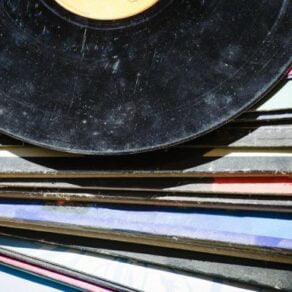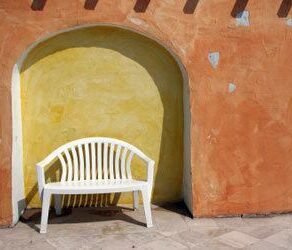
Table of Contents:
Keeping vinyl records dust-free is an important step in keeping their sound quality as perfect as the day you bought them. The distinct crackling sound that many records have is a result of dust that has settled in the grooves. Playing dirty records can cause damage, not only to the record itself but also to the stylus on your record player.
What You’ll Need
- Record cleaning brush
- Record cleaner or distilled water
- Soft cloth (like an old T-shirt)
The Cleaning Process
- Dust records before and after each and every use! This should be a part of your record maintenance routine. Dust in concentric motions using a special record cleaning brush preferably made out of carbon fiber. These brushes can be found in stores that sell records.
- For deeper cleaning, using an enzyme- or water- based record cleaner on a soft cloth. In her book, Home Comforts, Cheryl Mendelson also suggests using solutions containing 20% isopropyl alcohol, but be careful because this may cause damage if used over a long period of time. Be wary of using homemade solutions since they are not made with the purest of ingredients, which is necessary for cleaning delicate records. Martha Stewart’s Homekeeping Handbook also suggests using distilled water. Wet cleaning can be done as often as necessary, except if you are using an alcohol base—then clean only when absolutely necessary. WARNING: Careful not to wet the label! Dry in concentric circles with a clean, lint-free cloth (an old T-shirt works well).
- For deepest cleaning, use a vacuum record cleaning machine. Such machines, which cost an average of $500, are only practical if you are an avid record collector. This machine completely removes all residue from vinyl records and improves sound quality (even with brand new records!)
- Preserve your records by storing them properly. Always handle records by their edges. Your fingertips have dust and oil on them that can damage the delicate vinyl. Store records vertically and out of direct sunlight to prevent warping. Be sure to have enough space for all your records—you don’t want them to be squeezed together too tightly. Replace the paper that your records come in with a sleeve. Outer sleeves should be used, as well, to protect the jacket and keep dust from coming into contact with the record.








When cleaning your vinyl records with the above methods, or using a specialist cleaning fluid, always use a ‘lint-free’ cloth. This will prevent any damage made to the record and will also remove static electricity from the record, which in turn, will improve the sound quality on the record playback.